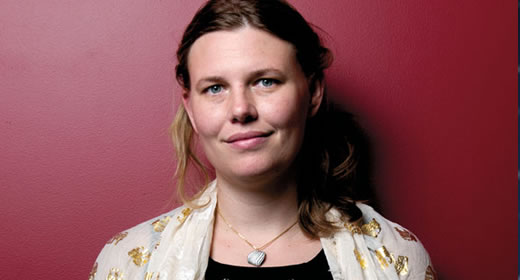Toward a Civic Technoscience: Public Tools for Environmental Health Research
Speaker
Sara Wylie, Assistant Professor of Sociology and Health Science, Northeastern UniversityDate & time
Location

Talk Abstract: Human experience is the frontline of emerging environmental health problems. This talk discusses how we can more successfully build a research infrastructure for this frontline of experience, through reducing the cost of research tools, developing open source collaborative software for research such as publiclab.org and creating community-academic partnerships. Through analyzing a community based project using photographic paper to map hydrogen sulfide, a neurotoxic gas, associated with natural gas and oil extraction, this talk explores how we can collaboratively redesign our research and advocacy to support the systematic grassroots study of industrial infrastructure.
Speaker Bio: Sara Wylie seeks to develop new modes of studying and intervening in large-scale social issues such endocrine disrupting chemicals through a fusion of social scientific, scientific and art/design practices. Dr. Wylie is director of Toxics and Health Research for Public Laboratory for Open Technology and Science, and has a joint appointment between health sciences and the Department of Sociology and Anthropology as part of Northeastern’s Social Science and Environmental Health Research Institute. She completed her PhD in MIT’s History, Anthropology, Science, Technology and Society (HASTS) Program in 2011. Her dissertation, entitled “Corporate Bodies and Chemical Bonds: an STS analysis of the American Natural Gas Industry,” involved ethnographic study with The Endocrine Disruption Exchange, a non-profit founded by Theo Colborn, lead author of Our Stolen Future, whose independent research on chemicals used in natural gas extraction influenced national discussions of hydraulic fracturing. Ethnographic study with this organization and communities experiencing natural gas extraction led her to develop web-based tools to help communities and experts across the country study and hold extractive industries accountable for their social and environmental impacts. This project called ExtrAct was developed in collaboration with artist and technologist Chris Csikszentmihalyi, in MIT’s Center for Civic Media. Following her interest in digital media, Wylie taught classes on practicing social science critique of science and technology through art and design and co-lead a research group with Jeff Warren on Environmental Justice in Rhode Island School of Design’s (RISD), Digital+Media Department. In 2011 Wylie co-founded a non-profit dedicated to developing open source, Do-It-Yourself tools for community based environmental health research, Public Laboratory for Open Technology and Science (PLOTS-publiclaboratory.org). PLOTS won a Knight Foundation’s News Challenge Grant in the summer of 2011.
Co-sponsors: Environmental Health Sciences and Center for Research on Ethnicity, Culture & Health (CRECH)
Questions? Contact Caroline Walsh
Listen to the audio
